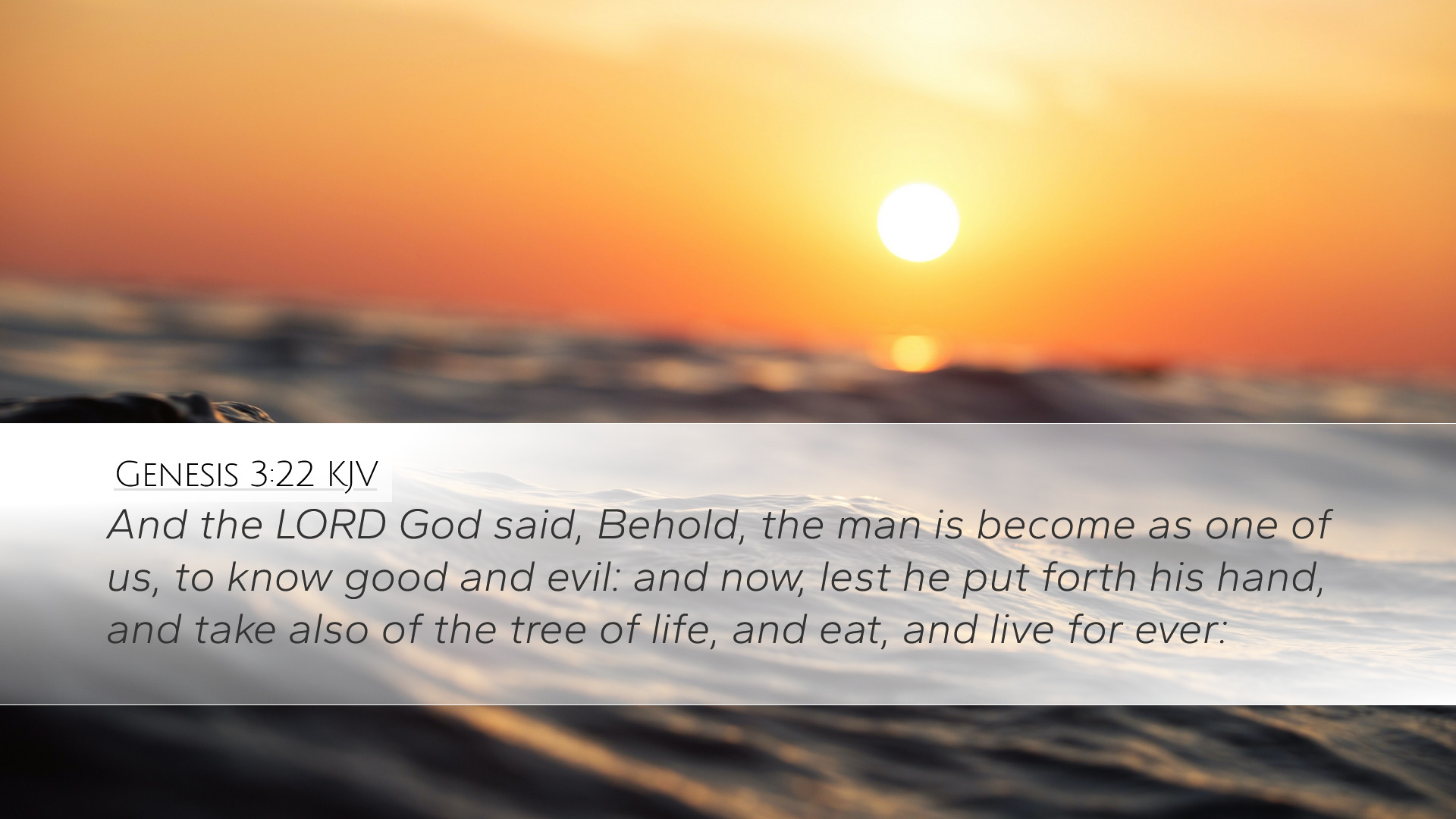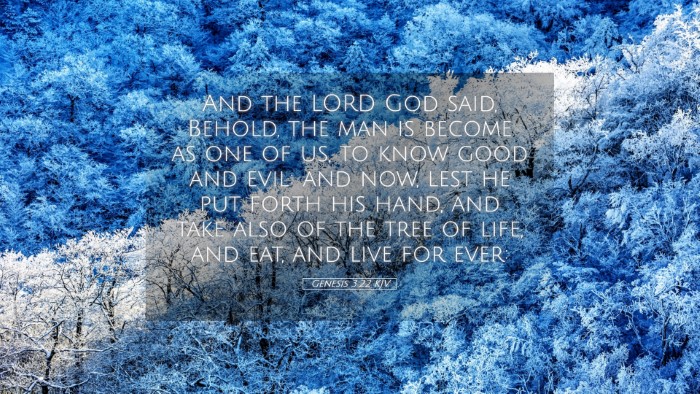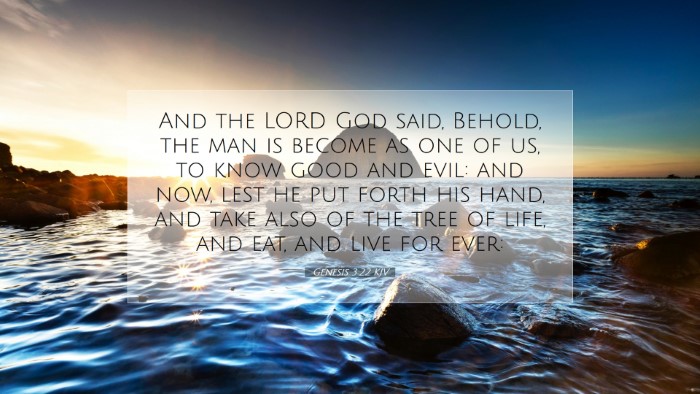Exegesis of Genesis 3:22
Verse Text: "And the LORD God said, Behold, the man is become as one of us, to know good and evil: and now, lest he put forth his hand, and take also of the tree of life, and eat, and live forever:"
Context and Analysis
This pivotal verse occurs within the narrative of humanity's fall into sin. In the broader context of Genesis 3, Adam and Eve's disobedience results in their expulsion from Eden, a decisive moment in Biblical theology underscoring the profound effects of sin.
The Divine Council and Knowledge of Good and Evil
When God states, "the man is become as one of us," it suggests a plural aspect of the divine nature, possibly indicative of a divine council. This anthropomorphism enriches our understanding of God’s nature and His relationship with humanity.
- Matthew Henry: Henry highlights that this knowledge of good and evil signifies man’s moral awakening and the serious consequences of his choice.
- Albert Barnes: Barnes elucidates that the phrase does not imply equality with God but rather a newfound awareness that separates man from his original innocent state.
- Adam Clarke: Clarke interprets "knowing good and evil" as an experiential knowledge, suggesting that Adam and Eve’s disobedience led them into a realm of moral complexity.
The Tree of Life
The passage further warns against the potential consequence of Adam and Eve eating from the tree of life. This tree symbolizes eternal life — access to its fruit would permit humanity to live perpetually in a fallen state.
- Matthew Henry: He expresses that the preservation of the tree of life within paradise underlines God's provision of eternal life, which now faces the risk of being misappropriated.
- Albert Barnes: He states that God’s intention to prevent man from eating of the tree of life reflects His justice and mercy, preventing eternal existence in sin.
- Adam Clarke: Clarke posits that God’s intercession at this moment demonstrates His sovereign control and love, seeking to protect humanity from ultimate ruin.
Theological Implications
This verse is foundational in understanding several key theological principles:
- The Nature of Sin: Adam and Eve’s disobedience introduces sin, altering their relationship with God and the natural order.
- The Transformative Knowledge: The knowledge of good and evil signifies a crucial transformation in human consciousness, moving from innocence to moral discernment.
- Divine Protection: God's decision to restrict access to the tree of life serves as both a preventive measure against eternal separation from Him and a reflection of His loving justice.
Application for Pastors and Theologians
This verse invites pastoral reflection on the nature of temptation and the implications of moral choices made by believers. It underscores both the seriousness of sin and the mercy of God, providing rich material for sermons focused on redemption and the restoration of relationships with God.
Lessons for Ministry
- Understanding Temptation: Like Adam and Eve, believers are often tempted to seek autonomy from God's commands.
- Encouraging Discernment: Emphasizing the necessity of wisdom in making moral choices, highlighting the importance of scripture in guiding decisions.
- Proclaiming Grace: While the fall introduces sin, the narrative also suggests the hope of redemption found in Christ, who restores access to eternal life.
Conclusion
Genesis 3:22 serves as a profound reminder of the transformative consequences of sin. The insight provided by Matthew Henry, Albert Barnes, and Adam Clarke enriches our understanding of this text, inviting further exploration into the depths of God's justice, mercy, and the ongoing narrative of redemption that unfolds throughout scripture.


